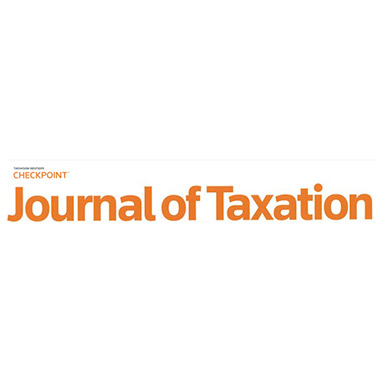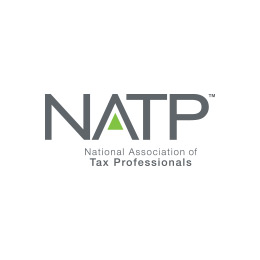Tax evasion could be charged against any U.S. taxpayer who fails to report their income or disclose their foreign accounts, assets, or investments. Over the last decade, the Internal Revenue Service (IRS) has made tax evasion a primary focus of its enforcement efforts.
International tax evasion is a serious offense with far-reaching legal consequences. As the U.S. government and international organizations intensify their efforts to combat tax evasion, individuals facing evasion charges need the help of an experienced tax evasion defense attorney more than ever. While the problem might seem insurmountable, programs are available to help you settle the matter with the IRS and regain compliance with U.S. tax law.
For your free case evaluation, call our international tax evasion defense attorneys at McCormick Tax Law at (215) 630-0861.
Understanding International Tax Evasion
International tax crimes come in various forms, but none is as notorious as tax evasion. Unlike other tax offenses, tax evasion is a grave felony that can result in imprisonment and hefty fines if a person is found guilty. Moreover, tax evasion charges often lead to the tacking on other related offenses, including money laundering, tax fraud, conspiracy, and more.
The most common types of international tax evasion include hiding money overseas, creating shell companies abroad to set up secret bank accounts with anonymous third-party identifiers, and deliberately neglecting to report foreign income that is required to be disclosed on Form 1040.
Fortunately, our international tax evasion defense attorneys can help you avoid tax evasion charges by filing for the IRS’s Voluntary Disclosure Program. Through this program, individuals alleged to have committed tax evasion can come forward and disclose their hidden assets. By taking responsibility, individuals might be able to avoid the most serious penalties, including jail time. If you wait for the IRS to conclude an investigation before reporting your taxes, the Voluntary Disclosure Program will not be an option.
Penalties for International Tax Evasion
It is crucial to understand the gravity of international tax evasion. The consequences of such actions can result in severe penalties that include hefty fines and imprisonment. The IRS has a range of penalties for individuals who fail to report or disclose foreign accounts and assets. To avoid these penalties, it is essential to comply with tax laws and regulations.
Penalties for Tax Evasion
It is a serious offense to intentionally avoid or refuse to pay any taxes imposed by the government, as stated in 26 U.S.C. § 7201. In addition to any other legal penalties, this behavior is considered a felony, and if found guilty, one might face a fine of up to $100,000, or $500,000 in the case of a corporation, and a maximum prison sentence of 5 years, along with prosecution costs.
Penalties for Failing to File a Tax Return
It is crucial to file your taxes on time to avoid any potential penalties. Failing to file by the deadline could result in a failure-to-file penalty, while not paying by the due date could lead to a failure-to-pay penalty. Generally, the failure-to-file penalty is higher than the failure-to-pay penalty.
If you file your tax return late, you might face a penalty of 5% of the unpaid taxes for every month or partial month that your return is late. This penalty can go up to 25% of your unpaid taxes. If you file your return more than 60 days after the due date or extended due date, the minimum penalty will be the smaller of $135 or 100% of the unpaid tax. It is important to understand the consequences of filing and paying late to avoid any additional fees and charges.
Penalties for Failing to Pay Your Taxes by the Return Date
When you fail to pay your taxes by the due date, the IRS might assess a failure-to-pay penalty. This penalty will be 0.05% of your unpaid taxes for each month or a fraction of a month after the due date that the taxes remain unpaid. The penalty can be as high as 25% of your unpaid taxes. In case both the failure-to-file penalty and failure-to-pay penalty are applicable in a month, the 5% failure-to-file penalty is reduced by the failure-to-pay penalty.
If you file your return more than 60 days after the due date or extended due date, the minimum penalty is the smaller of $135 or 100% of the unpaid tax. You can avoid the failure-to-file or failure-to-pay penalty if you can demonstrate that you were unable to file or pay on time because of reasonable cause and not willful neglect.
Penalties for Civil Tax Fraud
When an individual or entity deliberately conceals or misrepresents information that leads to an underpayment of taxes, the tax authorities might apply a penalty. This penalty takes the form of an increase of 75% of the portion of the underpayment that can be linked to fraudulent activity.
For example, if someone underpaid their taxes by $1000 and it is determined that $500 of that amount was because of fraudulent activity, the penalty would be $375 (75% of $500). This penalty serves as a deterrent to fraudulent activity and encourages individuals and entities to be truthful and forthcoming in their tax reporting.
Penalties for Failing to File an FBAR
If you intentionally fail to file an FBAR, you might be subject to paying a civil penalty that can be as high as the greater of $100,000 or 50% of the total balance of the foreign financial account per violation. On the other hand, if the IRS determines that your violation was not intentional, you might still be subject to a $10,000 penalty per violation, even if the violation was non-willful.
How to Defend Against Charges of International Tax Evasion
Taxpayers who intentionally evade paying their taxes, even if they have committed criminal tax offenses, might still be eligible for the IRS Voluntary Disclosure Program. The program is specifically designed to assist such taxpayers in becoming compliant with the tax laws and avoiding any potential criminal charges.
Under the program, willful taxpayers are required to admit to their wrongdoing and pay all outstanding taxes, interest, and penalties. In exchange, they generally receive immunity from criminal prosecution for their past actions. It is important to note that taxpayers must apply for the Voluntary Disclosure Program before the IRS contacts them; otherwise, they lose the opportunity to participate in the program.
The IRS also offers Streamlined Procedure submissions to taxpayers who have unintentionally evaded their taxes. Those who qualify as non-willful have a higher chance of success with this submission process. However, if a taxpayer is found to have willfully submitted a false narrative under the Streamlined Procedures, they might face severe penalties and fines. It is essential to understand the difference between willful and non-willful conduct when submitting to the Streamlined Procedures.
Our International Tax Evasion Defense Attorneys Can Help
For help avoiding costly tax evasion penalties, contact our international tax evasion defense lawyers for a free case review today by calling McCormick Tax Law at (215) 630-0861.










